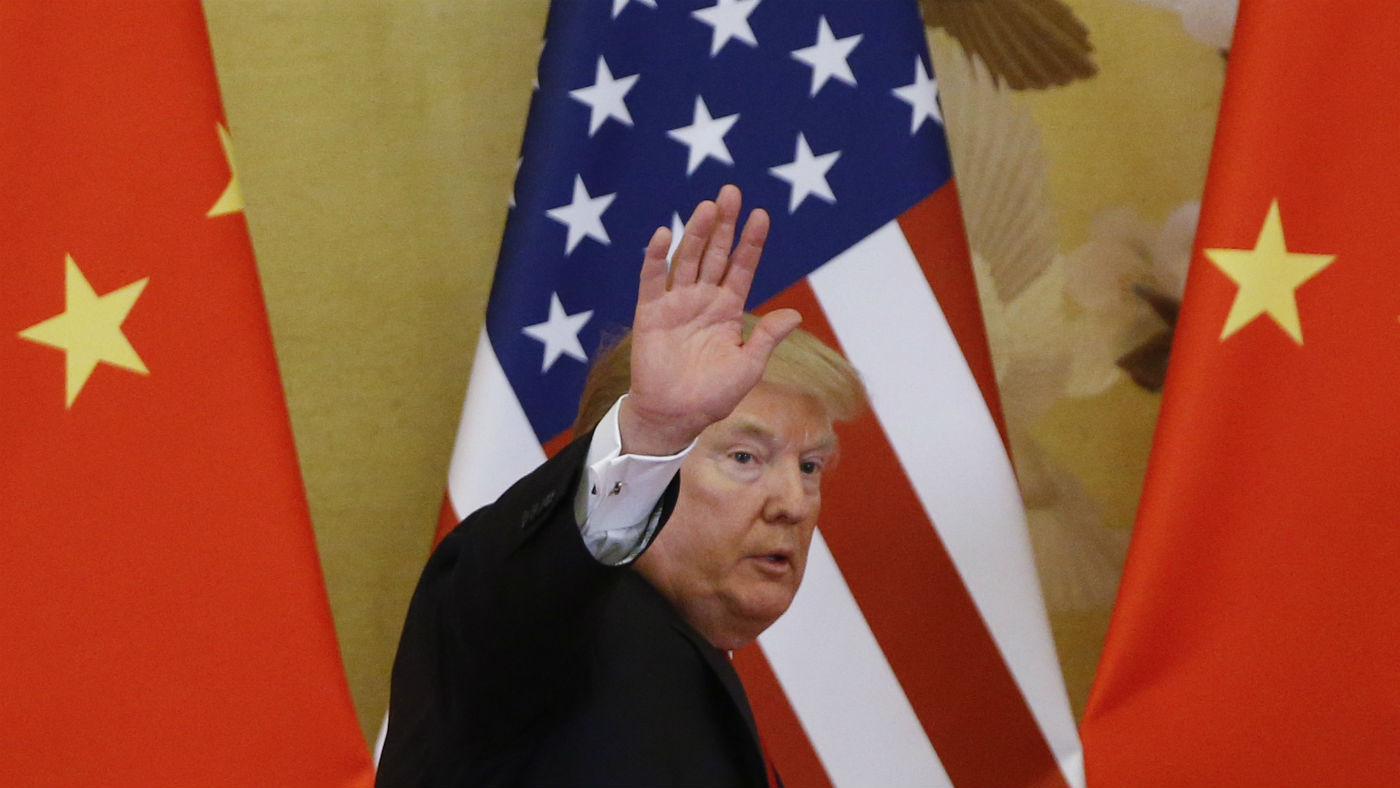Trump tweets put China trade talks in doubt
Global markets plunge after US president ramps up rhetoric ahead of Wednesday’s meeting

A free daily email with the biggest news stories of the day – and the best features from TheWeek.com
You are now subscribed
Your newsletter sign-up was successful
Global markets tumbled yesterday after Donald Trump threatened to raise tariffs on all Chinese imports to 25%, putting crunch trade talks between the world’s two largest economies in doubt.
In a series of tweets, the president said the US would more than double tariffs on $200bn (£152bn) of Chinese goods on Friday and would introduce fresh tariffs.
“The tweets wrongfooted investors who had been growing optimistic that a trade deal was on the cards, and ruptured the calm that had descended over global markets since December’s turmoil,” said the Financial Times.
The Week
Escape your echo chamber. Get the facts behind the news, plus analysis from multiple perspectives.

Sign up for The Week's Free Newsletters
From our morning news briefing to a weekly Good News Newsletter, get the best of The Week delivered directly to your inbox.
From our morning news briefing to a weekly Good News Newsletter, get the best of The Week delivered directly to your inbox.
A 100-person Chinese delegation had been preparing to travel to Washington for negotiations on Wednesday, aimed at ending the year-long trade war.
But the FT says the “aggressive tweets from Trump marked a big shift in rhetoric on the negotiations and raised the possibility that this week’s round could be delayed or cancelled by Beijing”.
Taken by surprise, the Wall Street Journal reported that Beijing was considering cancelling the talks altogether. But while a pared-down delegation is still expected to make the journey, the editor of the influential Chinese state-run Global Times newspaper said the head of China’s negotiating team Vice Premier Liu He Liu was now “very unlikely” to go.
According to the BBC, “in recent days US officials have become frustrated by China seeking to row back on earlier commitments made over a deal”.
A free daily email with the biggest news stories of the day – and the best features from TheWeek.com
Sticking points have included how to enforce a deal, whether and how fast to roll back tariffs already imposed and issues around intellectual property protection.
Tom Orlik, chief economist at Bloomberg Economics, said “it’s possible talks are breaking down, with China offering insufficient concessions, and an increase in tariffs a genuine prospect.”
“More likely, in our view, is that this renewed threat is an attempt to extract a few more minor concessions in the final days of talks” Orlik concluded.
The Daily Telegraph says “Trump wants to keep some, if not all, of the existing tariffs on China as part of any final trade deal to ensure China lives up to its commitments”.
Mindful of his 2020 re-election bid, Trump suggested the measures were not leading to price increases for US consumers. “The Tariffs paid to the USA have had little impact on product cost, mostly borne by China,” he tweeted.
According to Reuters, “tariffs on Chinese goods are actually paid to the United States by companies that import the goods, and most of those companies are US-based. American businesses, while supportive of Trump’s crackdown on China’s trade practices, are eager for the tariffs to be removed, not expanded”.
-
 What to know before filing your own taxes for the first time
What to know before filing your own taxes for the first timethe explainer Tackle this financial milestone with confidence
-
 The biggest box office flops of the 21st century
The biggest box office flops of the 21st centuryin depth Unnecessary remakes and turgid, expensive CGI-fests highlight this list of these most notorious box-office losers
-
 The 10 most infamous abductions in modern history
The 10 most infamous abductions in modern historyin depth The taking of Savannah Guthrie’s mother, Nancy, is the latest in a long string of high-profile kidnappings
-
 Currencies: Why Trump wants a weak dollar
Currencies: Why Trump wants a weak dollarFeature The dollar has fallen 12% since Trump took office
-
 TikTok: New owners, same risks
TikTok: New owners, same risksFeature What are Larry Ellison’s plans for TikTok US?
-
 Trump wants a weaker dollar, but economists aren’t so sure
Trump wants a weaker dollar, but economists aren’t so sureTalking Points A weaker dollar can make imports more expensive but also boost gold
-
 Leadership: A conspicuous silence from CEOs
Leadership: A conspicuous silence from CEOsFeature CEOs were more vocal during Trump’s first term
-
 The end for central bank independence?
The end for central bank independence?The Explainer Trump’s war on the US Federal Reserve comes at a moment of global weakening in central bank authority
-
 Can Trump make single-family homes affordable by banning big investors?
Can Trump make single-family homes affordable by banning big investors?Talking Points Wall Street takes the blame
-
 What will the US economy look like in 2026?
What will the US economy look like in 2026?Today’s Big Question Wall Street is bullish, but uncertain
-
 Tariffs have American whiskey distillers on the rocks
Tariffs have American whiskey distillers on the rocksIn the Spotlight Jim Beam is the latest brand to feel the pain